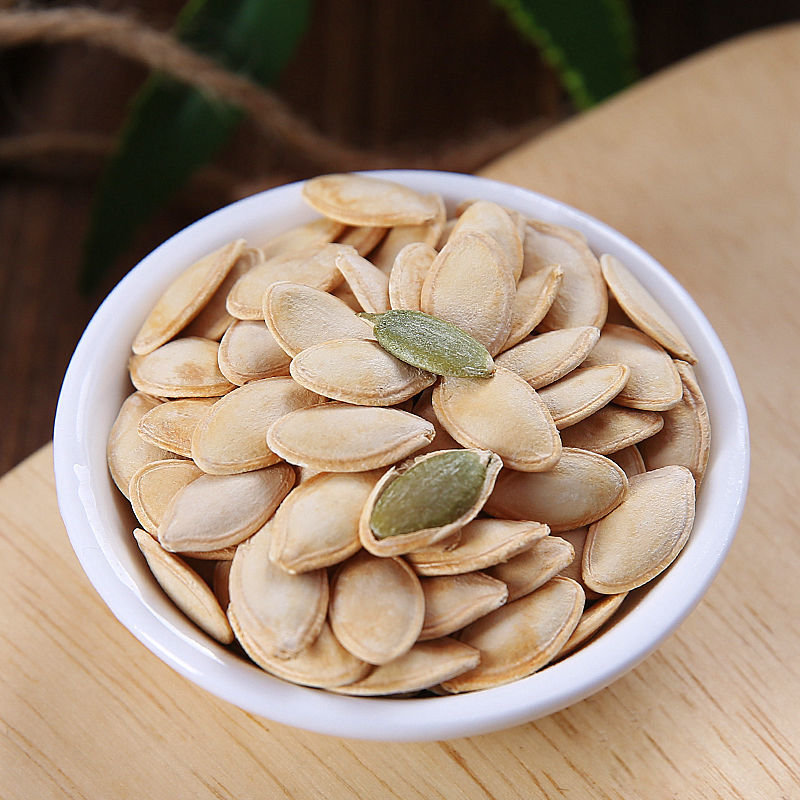Website:Innuts.com
The origins of the pumpkin seeds we consume today can be traced back thousands of years to the ancient civilizations of the Americas. These seeds have a rich history deeply intertwined with the cultures and traditions of indigenous peoples.
The story of pumpkin seeds begins in the region that is now known as Mexico, where pumpkins were first cultivated. Pumpkins are native to the Americas and have been grown by indigenous cultures for thousands of years. These early civilizations recognized the value of pumpkins not only for their delicious flesh but also for their seeds, which provided a nutritious food source.
Among the civilizations that treasured pumpkin seeds were the Mayans and the Aztecs. These cultures placed great importance on agriculture and had an extensive knowledge of plant cultivation. They cultivated a wide variety of crops, including pumpkins, and understood the nutritional benefits of different plant parts.
The Mayans, known for their advanced agricultural practices, utilized pumpkin seeds as a staple food in their diets. They appreciated the seeds' high protein content and rich nutritional profile. Pumpkins were an integral part of Mayan cuisine, and the seeds were often ground into flour or used in various dishes, such as stews and tamales.
Similarly, the Aztecs, another influential civilization in ancient Mesoamerica, held pumpkin seeds in high regard. They recognized the seeds as a valuable source of energy and nutrients and used them in various culinary preparations. The Aztecs also believed that pumpkin seeds possessed medicinal properties, using them to treat ailments such as intestinal parasites and kidney problems.
As the indigenous cultures of the Americas flourished, so did the knowledge and utilization of pumpkin seeds. These seeds were not only a source of sustenance but also held cultural and symbolic significance. They were used in rituals, ceremonies, and as offerings to deities, reflecting the deep connection between food and spirituality in indigenous cultures.
The cultivation of pumpkins and the consumption of their seeds gradually spread beyond the borders of Mexico, as indigenous peoples migrated and engaged in trade networks. Native American tribes across North and South America incorporated pumpkin seeds into their diets and adapted them to their local cuisines.

The arrival of Europeans in the Americas during the Age of Exploration played a significant role in the global dissemination of pumpkin seeds. The explorers encountered pumpkins and their seeds during their interactions with indigenous populations. They recognized the value of these seeds and brought them back to Europe, where they became known as "pepitas" or "pumpkin seeds."
In Europe, pumpkin seeds gained popularity as a nutritious snack and culinary ingredient. They were embraced for their taste, texture, and health benefits. Pumpkin seeds were incorporated into various recipes, from bread and pastries to soups and salads. They became an essential part of European cuisine, especially in Eastern European countries like Hungary, where roasted pumpkin seeds, known as "tökmag," are a beloved snack.
The cultivation of pumpkins and the consumption of their seeds continued to spread across continents through exploration, trade, and colonization. In the Americas, pumpkin seeds remained deeply rooted in the culinary traditions of indigenous cultures. They were utilized in traditional dishes like Mexican mole sauce, Peruvian pepián stew, and Native American cornbread.
Today, pumpkin seeds are enjoyed globally and are a popular ingredient in a wide range of cuisines. They are valued for their nutritional content, which includes protein, healthy fats, fiber, and various vitamins and minerals. Pumpkin seeds are often consumed as a snack, roasted and lightly salted, or used as a topping for salads, granola, and baked goods. They are also processed into pumpkin seed oil, which is utilized in cooking, as a salad dressing, or for its potential health benefits.
In conclusion, the pumpkin seeds we eat today have their origins in the ancient civilizations of the Americas, particularly in Mexico.
Please follow Innuts.com.

